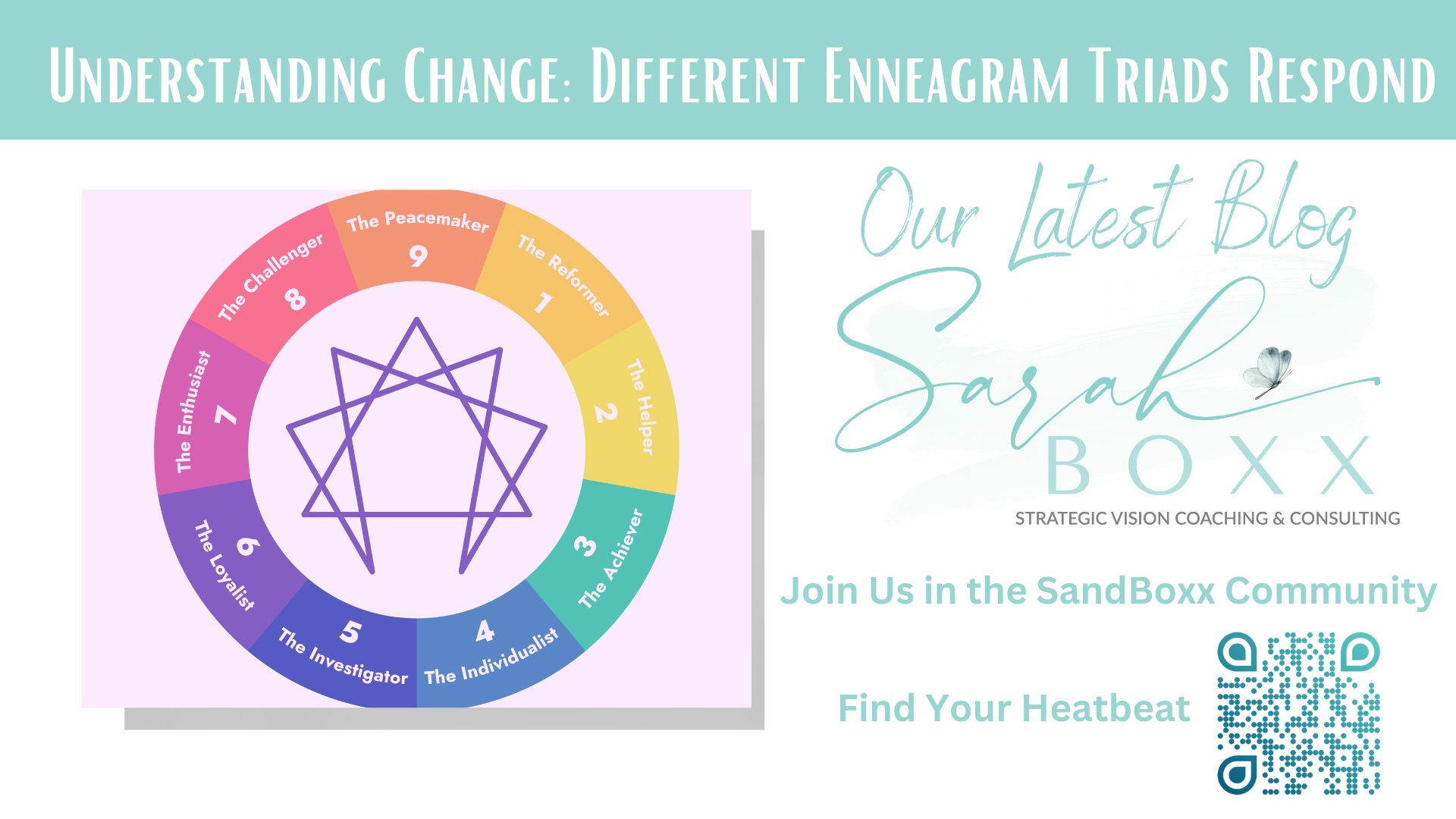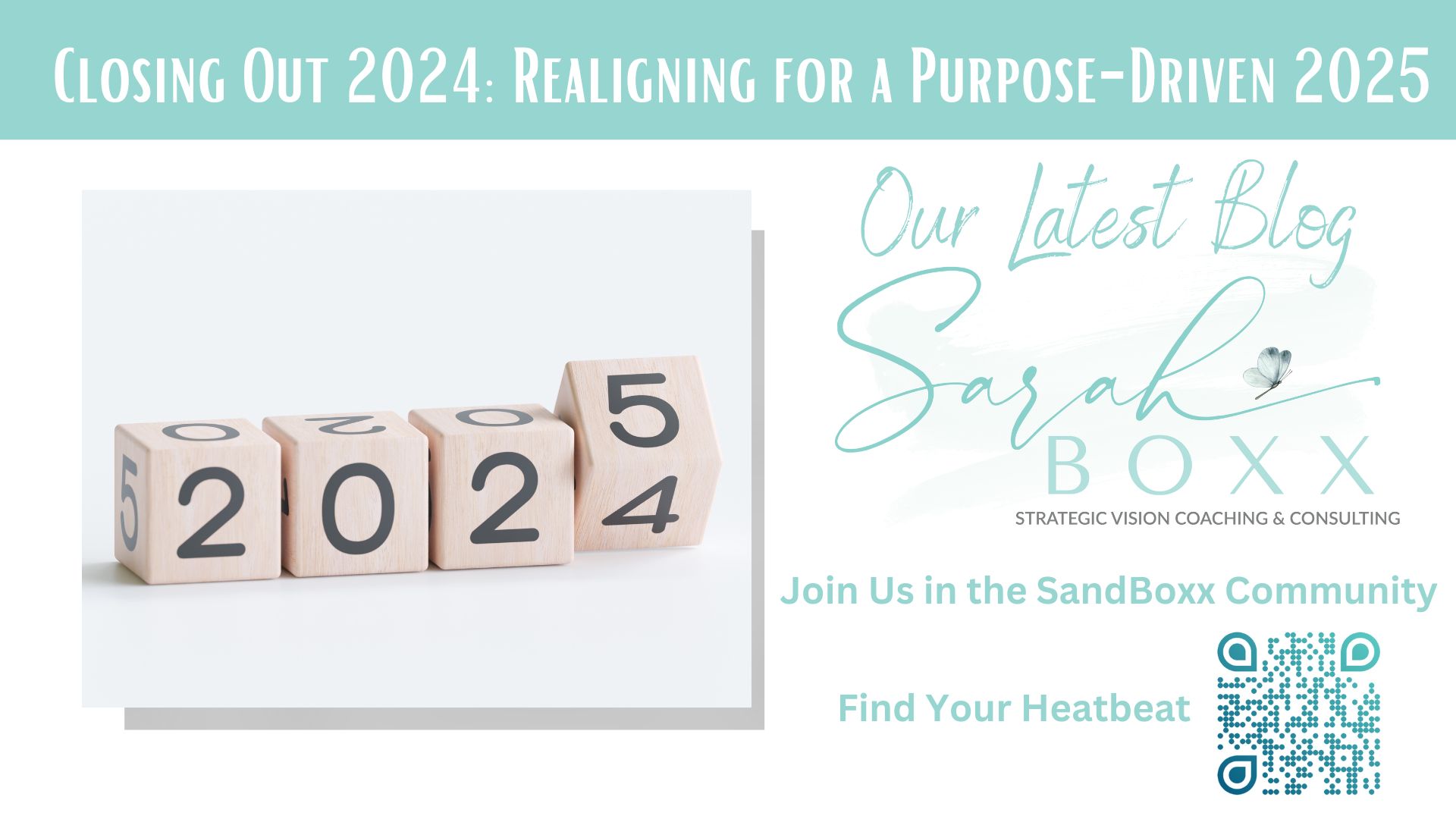Over the past couple of weeks, we’ve explored how to transition from summer to fall without stress and how to navigate the busy month of September with confidence and strategy.
As we continue to adapt to this new season, it’s important to recognize that our personalities play a significant role in how we handle change. This week, we’ll dive into the Enneagram—a powerful tool for understanding ourselves and others—and explore how the different Enneagram Triads respond to change.
First, What Are The Enneagram Triads
The Enneagram divides personalities into nine types, which are grouped into three primary triads: the Gut Triad, the Heart Triad, and the Head Triad. Each triad processes change and responds to challenges in distinct ways. Understanding these differences can help you navigate personal and professional transitions more effectively, whether you’re dealing with new routines, shifting priorities, or unexpected changes.
Let’s take a closer look at each.
Gut Triad (Types 8, 9, 1)
The Gut Triad—comprising Types 8, 9, and 1—is driven by instinct and action. These types often approach change by focusing on control, autonomy, and maintaining a sense of order.
- Type 8 (The Challenger): Often confronts change head-on, seeing it as a challenge to be overcome. They thrive in environments where they can take charge, but they may struggle with changes that threaten their sense of control.
-
- Strategy Tip: Embrace change as an opportunity to lead and influence positive outcomes, but also practice letting go when control isn’t possible.
-
- Type 9 (The Peacemaker): Prefers stability and harmony, often finding themselves resistant to change. They may avoid conflict and disruption, seeking to maintain peace at all costs.
-
- Strategy Tip: Focus on the benefits of change and how it can lead to greater harmony and well-being. Practice engaging with change rather than avoiding it.
-
- Type 1 (The Reformer): Approaches change with a sense of duty and a desire to do what is right. They strive for improvement and may become critical of changes that don’t align with their values.
-
- Strategy Tip: Channel the desire for improvement into constructive action. Recognize that not all change will be perfect, and that’s okay.
-
Heart Triad (Types 2, 3, 4)
The Heart Triad—comprising Types 2, 3, and 4—is driven by emotions and relationships. These types experience change on an emotional level and often consider how it affects their connections with others.
- Type 2 (The Helper): Focuses on how change impacts their relationships and may prioritize the needs of others over their own.
-
- Strategy Tip: Remember to care for yourself during times of change. Adapting to change can actually strengthen relationships.
-
- Type 3 (The Achiever): Views change as an opportunity to prove their competence and achieve success, but they may struggle with the pressure to perform.
-
- Strategy Tip: Set realistic goals and acknowledge your accomplishments, even in the face of change. It’s okay to slow down and reassess your priorities.
-
- Type 4 (The Individualist): Delves into the emotional depth of change, often reflecting on how it affects their identity and personal meaning.
-
- Strategy Tip: Embrace the emotional journey of change but avoid getting stuck in introspection. Use change as a catalyst for personal growth.
-
Head Triad (Types 5, 6, 7)
The Head Triad—comprising Types 5, 6, and 7—is driven by thinking and planning. These types of approach change with a focus on understanding and security.
- Type 5 (The Investigator): Analyzes change in detail, seeking to understand every aspect before taking action. They may struggle with moving forward if they feel they lack sufficient information.
-
- Strategy Tip: Recognize that not every change can be fully understood before action is taken. Allow yourself to take steps forward, even with incomplete information.
-
- Type 6 (The Loyalist): Anticipates potential problems and may feel anxious about change. They seek security and reassurance in the face of uncertainty.
-
- Strategy Tip: Build trust in your ability to navigate change. Focus on the resources and support systems you have in place to manage transitions.
-
- Type 7 (The Enthusiast): Embraces change enthusiastically, often seeking out new possibilities. However, they may avoid the deeper implications of change, preferring to focus on the positive.
-
- Strategy Tip: Balance your enthusiasm with mindfulness. Acknowledge the full spectrum of change, including its challenges, and plan accordingly.
-
This week’s wrap up
Understanding how your Enneagram type responds to change can empower you to navigate transitions with greater awareness and ease. By recognizing your natural tendencies and applying strategies that align with your strengths, you can make change a more manageable and even positive experience.
Whether you’re part of the Gut, Heart, or Head Triad, there’s no right way to handle change—only the best way for you.
As we move further into the fall season, take a moment to reflect on how you’re handling the changes in your life. How does your Enneagram type influence your approach? I’d love to hear your thoughts and experiences as we continue this journey together.
And if you don’t know your #EnneagramType (or think you may be mis-typed) you can take an assessment here (https://coach.yourenneagramcoach.com/sarah-boxx)
A Special Opportunity for 2025: Enneagram Coaching Certification
As we continue exploring how the Enneagram can help us navigate change, some of you might be drawn to deepen your understanding of this powerful tool. If you’ve ever thought about becoming an Enneagram coach, I’ve got some exciting news!
Beth and Jeff McCord, founders of Your Enneagram Coach, will open registration for their certification program in 2025 in the next few months. This is a fantastic opportunity for anyone interested in coaching others using the Enneagram to facilitate personal growth, deeper relationships, and greater self-awareness.
If you’re curious about becoming certified, I’ll share more information soon, including my affiliate link for the training program. Anyone who registers through my link will receive additional learning and practice support to help them on their journey to becoming confident and effective Enneagram coaches.
Would you like to learn more? Let me know HERE so I can send you details as soon as registration opens!
Whether you’re new to the Enneagram or looking to advance your knowledge, this could be the perfect next step on your journey. I’d love to support you as you explore this meaningful work!
#Enneagram #Triad #PersonalityType #changingseasons #GutTriad #HeartTriad #HeadTriad #mistyped #assessment





